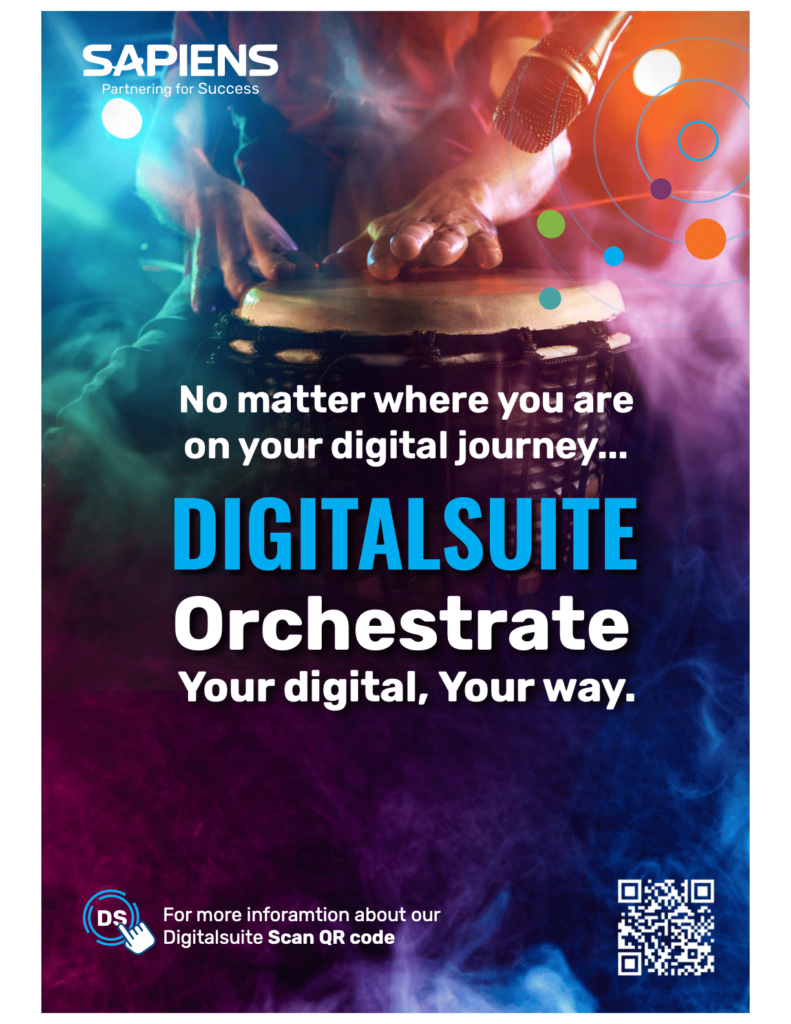Gary Tessendorf , Regional Director for Sub Saharan Africa at Sapiens
Part Two of a discussion with Gary Tessendorf, Regional Director for Sub Saharan Africa at Sapiens.
COVER: Continuing on the topic of modernization, and new build, when you’ve made a decision to build new, obviously, budget is a big factor. Is it possible to scale, in other words, start small and go bigger, to help you with your budget?
Gary: You have taken the words right out of my mouth. I think large scale transformation programmes are becoming fewer. That’s the reality right now where most of the insurance companies out there are looking for business benefits to be realised, as quickly as possible. So with that in mind, what we’re seeing is a multitude of the insurance companies reaching out to us for what we call a small scale startup, essentially, greenfields. So, literally taking some of the product’s ideas, templating and launching a product out to market very quickly, testing it to see the stickiness, the impact on the market, and seeing how the market responds.
What we see is that this is the business case, obviously for further expansion out into the wider range of products. This is an effective way to engage with the market. Everybody is using these words in the last 18 months, MVP, minimum viable product. It is a key strategy from our organisation to engage with wide organisations on that specific premise, to engage on MVP as quickly as possible and to scale out from there.
COVER: Would you be able say what you prefer, or what you think works best, to rather go big or go home?
Gary: It is the proverbial, chicken or egg situation. The reality is that it comes down to the executive sponsor. What I’m seeing is that you get some strong, very astute, very efficient executives that are willing to bite the bullet and make the big decisions and the big call. Whilst they’re there, and obviously sponsoring and focusing on the programme and the project, that is the quickest business in that perspective.
You literally have a full data migration where everything is occurring within one very tight timeframe. We see big business impact in this way and literally, the reality is at the end of that cycle, essentially, they’re completely modernised again for the future. Now, others are a bit more cautious, a bit more, let’s say, low key, let’s try something smaller, in more manageable chunks to go into the wider business. Again, it is a pure executive decision. Based on what I’ve seen, it’s a bit of both. It all comes down to executive sponsorship and willingness to actually make the hard calls. What I’m seeing, where we’ve been engaged recently, is that where you have a decision maker that is ready and willing to make the decisions quickly, supported by the business and obviously not negating the impact on change management, you have the best results.
COVER: And then, when you get to the making of that choice, does the technology skill set, internal in the company that’s wanting to make this change, not play any role in this decision as to where you start and which route you go?
Gary: It plays a significant role I mean, the reality of the situation is that the internal insurer skills are just as relevant to our skills. Most of these replatforming exercises, even be it small or large, are focused on a partnership. We’re going to be working together towards the end goal, which is to obviously go live to benefit the business, the wider market and the customer base. The reality is that internal insurer skills are a prerequisite for any type of engagement.
Just from a Sapiens perspective, it’s what we engage with and actually validate and vet during the process to make sure that we’re designing an architecture for future success. It is critical Tony and a big question in the current market environment. I’m sure we’re all aware, obviously that there is, let’s not say a skills shortage per se, but let’s just say it’s not exactly the best time to try and get hold of some of the more qualified skills in the current market.
COVER: Exciting stuff. I’m not in the big insurance corporates anymore but I would have loved to be there with all these technology opportunities?
Gary: It is amazing, Tony. Every day I wake up and it’s actually interesting to see what new things the cloud environment is doing new. The benefits are massive based on what we are seeing out in the wider market. It’s a very exciting time to be a vendor in this space. I think a lot of the International vendors are bringing a very wide range of expertise and experience best practices. They share what is working globally and obviously localising it within the South African market. I strongly believe there is a lot of good news on the horison for the insurance verticals.


